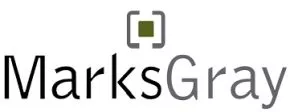- within Intellectual Property topic(s)
- in United States
- with readers working within the Technology industries
- within Intellectual Property topic(s)
- in United States
- with readers working within the Basic Industries industries
- within Intellectual Property, Media, Telecoms, IT, Entertainment and Technology topic(s)
When a company like Samsung Display Co., Ltd. (a subsidiary of Samsung Electronics) secures a major victory in trade-secret law, it sends a clear message to innovators and competitors alike. The recent win before the United States International Trade Commission (ITC) against BOE Technology Group Co., Ltd. offers several important takeaways for businesses of all sizes.
Understanding the Lawsuit Itself
Samsung alleged that BOE misappropriated dozens of trade secrets relating to OLED display-panel manufacturing (internal documents, process steps, and confidential definitions of panel design and fabrication).
The ITC's initial determination found that BOE used at least one of Samsung's protectible trade secrets and caused substantial harm to Samsung's domestic industry. The consequence: a proposed limited exclusion order banning certain BOE OLED products from U.S. importation for approximately 14 to 15 years.
Why Does This Matter for Your Business (Even If You're Not A Display-Panel Giant)?
Trade secrets remain a powerful tool. While patents often get the limelight, trade-secret protection is equally vital. Especially when you have internal know-how such as processes, manufacturing flows, or algorithms that you keep under wraps rather than publish.
If you do the work to treat that know-how as secret and someone misuses it, you can enforce your rights. That being said, there are still several important things to know:
The choice of forum counts. Among other things, the ITC handles unfair import practices. Its remedy is exclusion of infringing imports, rather than damages.
In this case, Samsung gained leverage by using that mechanism. So if a competitor is importing goods built on your secrets, border remedies may be part of your toolkit.
Proactivity is essential. In the Samsung-BOE story, Samsung had documented its secrets, implemented internal controls, and presented its domestic industry. It had to show that the secrets existed, were protected, that misappropriation occurred, and that serious harm followed.
If you wait until litigious trouble arises to start building that groundwork, you weaken your position.
Globalization complicates enforcement and heightens risk. With supply chains spanning countries, technology leaks, expatriate employees, and cross-border manufacturing, vulnerabilities multiply. The Samsung case involved Korean, Chinese, and U.S. intersections. Additionally, import bans across borders can magnify the impact.
Protection is even more important in a fast-moving industry. In industries involving displays, semiconductors, and software (and increasingly in services), the pace is rapid.
But if you invest in innovation, you must guard it. Otherwise, your competitor may adopt your methods and erode your commercial advantage.
How Can You Give Yourself Some Protection?
There are several things you can do:
Identify your trade-secret assets. Make a list of what you treat as confidential: processes, algorithms, manufacturing flows, client lists, or pricing models.
Institute robust protections. Non-disclosure agreements, access controls, employee training, and exit policies.
Monitor markets. If you suspect unauthorized use or importation of goods built on your secrets, act quickly.
Tailor strategy. Worried a foreign component or import chain is using your secrets? Consider whether a trade remedy such as an ITC action may be justified – or whether a district court case for misappropriation is more suitable.
Budget for enforcement. IP protection is not just fence-building. If you plan to enforce, ensure that litigation or administrative remedies are financially feasible.
The Samsung-BOE decision reinforces several key lessons:
- Your internal know-how is an asset.
- The law offers meaningful remedies, including exclusion of infringing imports
- You must treat your secrets as assets by documenting them, protecting them, and monitoring for misappropriation.
But the most important lesson may be this: particularly for businesses that rely on innovation (manufacturing, software, design, services), the time to act is always "now."
The content of this article is intended to provide a general guide to the subject matter. Specialist advice should be sought about your specific circumstances.


